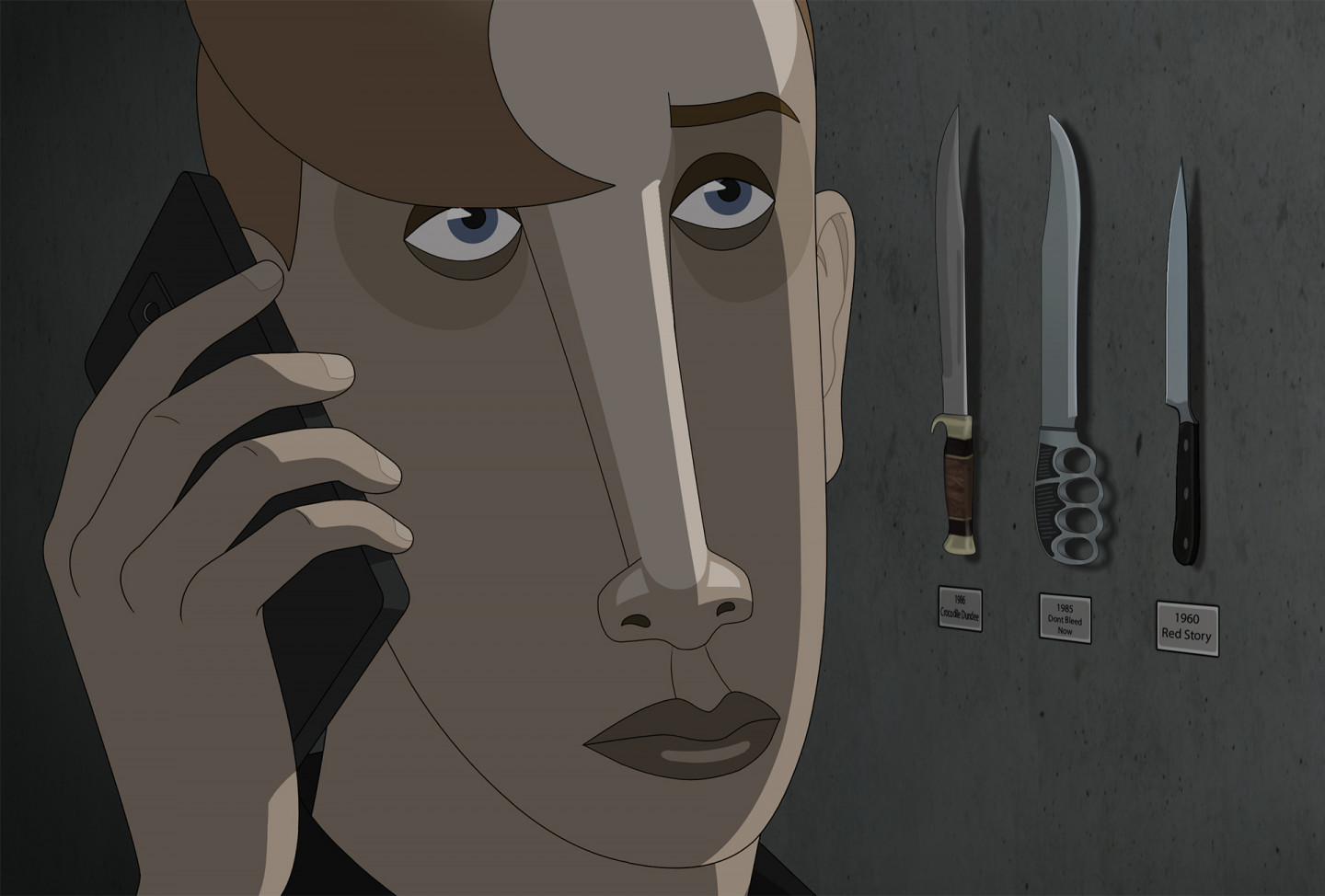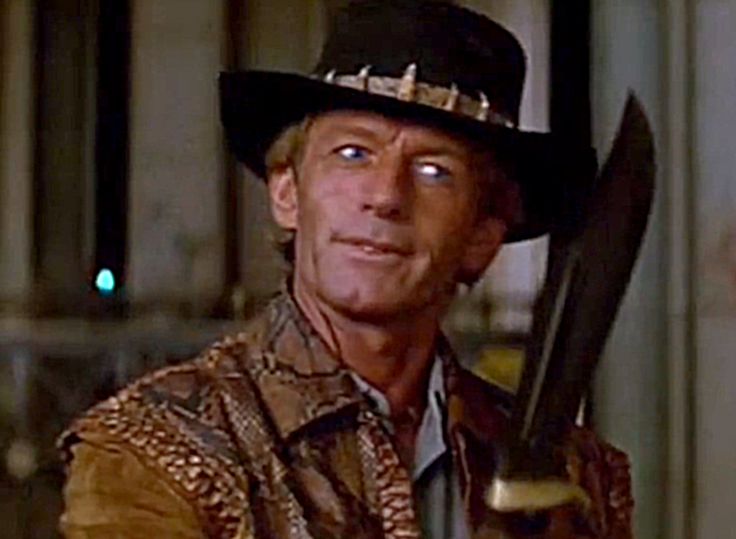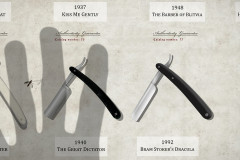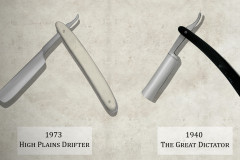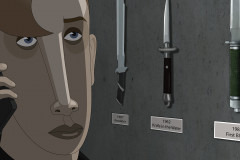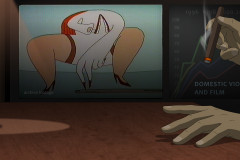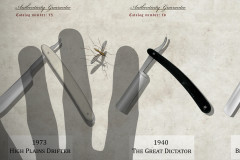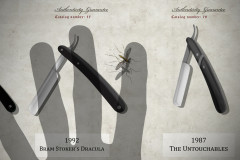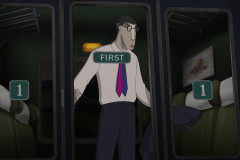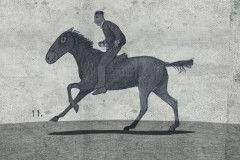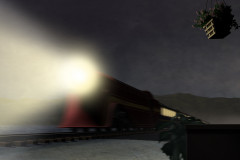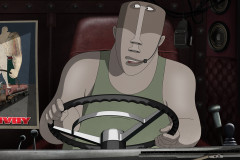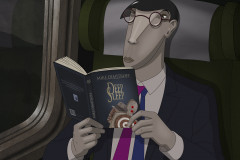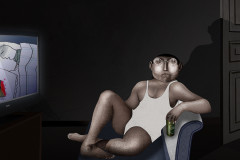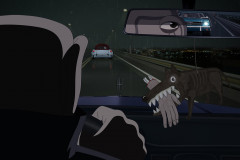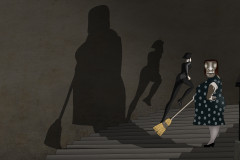Peter Faiman: Krokodil Dundee (1986)
Egy kedves vígjáték, amiből mindenkinek csak előnye származott. Egy ausztrál film világszerte megnevettette az embereket, és elgondolkodtatta őket arról, hogy másféleképpen is lehet élni. Peter Faiman rendező nagy kasszasikernek örülhetett. A két főszereplőnek, Paul Hogannek és Linda Kozlowskinek pedig ez volt az első főszerepe, amibe annyira belejöttek, hogy egy sor filmben játszottak még együtt, majd össze is házasodtak.
„Ez nektek egy kés? Na, ez egy kés!” Ezzel a mondattal rántja elő Krokodil Dundee a híressé vált, nagy krokodilnyúzóját, amikor félreérti egy nagyvárosi rablóbanda szándékát, és azt hiszi, hogy csak bicskákat akarnak mutogatni egymásnak. Annyira penge volt ez a poén és a kés, hogy be is került Kowalski nyomozó gyűjteményébe a Ruben Brandt, a gyűjtőben.
Ahogy az ausztrál vadonból érkezett krokodilos ember New Yorkban félreért mindent, és a maga kedves, naiv, kimódolatlan természeti világán keresztül néz mindent, az klasszikus komikai séma. Egyben tükörképe a film első felének, amelyben viszont egy New York-i újságírónő próbál boldogulni az ausztrál pusztaságban, és ismerkedik a benszülöttek és a természetbe szakadt többi ember életével. No meg persze sok-sok krokodillal. A sztori valós előképre épül: egy illegálisan krokodilra vadászó, majd egy baleset miatt civilizációból kényszerűen kiszakadó férfi történetére, aki valóban nehezen tudott visszailleszkedni a városi életbe, miután csodával határos módon visszatért a krokodilok közül.
A film szépen felmondja a tolerancia és a kulturális perspektívaváltás leckéit, és finoman terelgeti a nevető néző figyelmét arra, hogy nyugodtabban, természet- és emberközelibb módon is élhetne, mint amit a városi kavalkádban megszokott. (Lásd pl. amikor Krokodil Dundee úrinőként bánik két utcalánnyal.) A film kedves kisugárzása és a humora is magyarázzák, hogy miért ért meg két folytatást. De vannak, akiket a személyes útkeresésükben is megerősített ez a film, amikor elegük lett a városi életmódból. Pedig nem is dráma, „csak” egy hatásos, a világirodalomban és a filmtörténetben sokszor bevált történetsémával dolgozó, emberbarát komédia.
Crocodile Dundee (dir. Peter Faiman, 1986)
A charming comedy that left everyone better off. This Australian film made audiences around the world laugh—and reflect on the idea that life can be lived differently. Director Peter Faiman enjoyed a huge box-office success. For the two leads, Paul Hogan and Linda Kozlowski, it was their first starring role. They performed so well together that they went on to star in several more films—and eventually got married.
“That’s not a knife. This is a knife!” With this line, Crocodile Dundee draws his now-famous crocodile-hunting blade, mistaking a city gang’s mugging attempt for a playful knife-measuring contest. The joke—and the knife—were so sharp they ended up in Detective Kowalski’s collection in Ruben Brandt, Collector.
As the crocodile man from the Australian Outback arrives in New York and misinterprets everything through his naive, rugged, nature-bound worldview, the film follows a classic comic structure. It mirrors the first half of the story, where a New York journalist tries to find her footing in the wild, learning about indigenous communities and people living in close connection with nature—not to mention plenty of crocodiles. The story was based on a real-life figure: a man who hunted crocodiles illegally and, after a life-threatening accident, was forced to leave civilization behind. He had a hard time readjusting to urban life after miraculously returning from the wilderness.
The film delivers gentle lessons on tolerance and cultural perspective-shifting, subtly guiding the viewer to consider a calmer, more human- and nature-friendly way of life—quite unlike the chaos of urban living. (See, for example, the scene where Dundee treats two streetwalkers with the manners of a gentleman.) The film’s warmth and humor help explain why it spawned two sequels. But for some viewers, it went beyond entertainment—it encouraged personal change when they’d had enough of city life. And all this from a lighthearted, feel-good comedy built on a time-tested narrative from world literature and film history.






